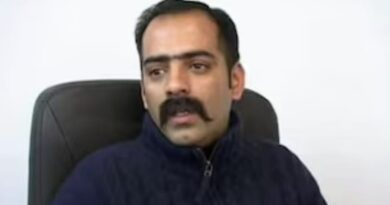When Justice Comes Too Late: Shanta Kumar’s Wake-Up Call on Forest Encroachment
In a powerful and emotional critique, former Himachal Pradesh Chief Minister and senior BJP leader Shanta Kumar has called out decades of silence, complicity, and corruption that allowed illegal apple orchards to flourish on forest land. His remarks come in the wake of a Supreme Court directive ordering the felling of nearly 4,000 apple trees grown on 300 bighas of encroached government land.
While the court-mandated action has begun, Kumar’s words have struck a deeper chord—highlighting how the system failed not just the law, but the land itself.
“Where was the government all these years?” he asked, pointing to the years it took for the orchard to grow and bear fruit. “This wasn’t a crime of impulse—it was a slow, deliberate theft. And now, just before harvest, the axe falls—not on the corrupt, but on the trees.”
Images of fruit-laden apple trees being cut down have stirred public emotion, but Kumar insists this is not just about one village. It’s about a pattern—forest land worth crores quietly grabbed while officials turned a blind eye.
A Crime That Grew in Plain Sight
Kumar questioned how such massive encroachment could happen under the nose of the administration. “There’s a government presence in every village, every block. Yet, under the lure of a few silver coins, consciences were sold and forests looted—tree by tree, bigha by bigha.”
He drew parallels with similar cases across India, where illegal constructions are allowed to thrive for years, only to be demolished later—while the officials who enabled them walk free.
Courts Act, But Questions Remain
While acknowledging the judiciary’s recent action, Kumar didn’t shy away from asking tough questions. “Why did it take so long? Why hasn’t anyone asked who allowed this encroachment to begin? Why are only the trees being punished, not the people who let this happen?”
His words reflect a deeper frustration—one shared by many citizens—about a system that often acts only when it’s too late.
Cutting Trees Isn’t Enough—Cut the Rot
As bulldozers roll in and trees fall, Kumar’s statement has sparked a vital conversation: Who benefits from delayed justice? And who pays the price?
The orchard may be gone, but unless the roots of corruption are pulled out, more such tragedies will bloom—until the axe falls again.



